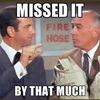The FCC is voting on the anti-muni laws this month. Quite a few states - triggered by the big money of the Duopoly - have passed laws outlawing government broadband networks. The FCC sees the Chattanooga Gig Initiative by municipal provider EPB as its model. It isn't quite the model. Funded by taxes and a $111 million DOE stimulus grant for Smart Grid, mired in debt, it is a closed network. The network should have been Open - meaning that other ISPs could buy transport.
Here is the Wholesale Paradox: The LECs and cablecos HATE wholesale. HATE IT!!!! but it is a large chunk of revenue on networks that are basically not fully utilized. And without selling wholesale network services to competitors that would not only have an under-serving asset, but they would be missing out on a bunch of revenue.
Selling last mile connections for CLECs gives cable a way to extend its network into new businesses and buildings without the expense of sales. The same with the ILECs.
Think about MVNO - the virtual cellco. When Amazon launched the Kindle e-reader it came with EVDO access via the Whispernet powered by Sprint. AT&T came along a few years later and offered a better deal. Why would AT&T undercut Sprint for that? Ma Bell knew its cost structure and that with its excess capacity on 3G, this would be like free money. It's why all of the cellcos offer MVNO: more sales people out there driving revenues on a network that is already built and costs billions to maintain. Besides, no MVNO has sold more than a half a million units. CinBell sold about 350K subs to VZW last year. NTelos has about 450K on its network, partnered with Sprint. So no MVNO represents a threat to the 4 cellcos model. It is simply a way to make more margin on a sunk cost - the network and its under-utilized capacity.
You empower your competitors with wholesale. It is also revenue that you don't have a cost of sales on. And as long as you have your sales and marketing machine spinning away properly, your competition will just be a small revenue source.
EPB has a monopoly mindset -- and probably a lack of sales & marketing acumen, which means they feel threatened by wholesale. However, when you exit the end user support and the cost of sales & marketing to the end user, your costs go down. And you get to focus on building and operating a network - a single focus - which according to this Washington Times article they can't handle. It is the big dilemma with muni built and taxpayer funded networks - -they aren't open usually.
When you think about it, the continual rate increases on cable has helped build that network -- the same way that telcos were able to get rate increases for promises of fast broadband to the home. So in a way most networks are taxpayer funded. Networks have been built (or at least upgraded) with grants, loans and subsidies from the Universal Service fund, BTOP, BIP, RUS, NTIA, the Dept. of Agriculture and other federal agencies.
Even the cellular networks are built using licenses of public airways.
Shouldn't those networks be open to wholesale? Innovation doesn't happen in a vacuum. We have seen what No Competition has done to service, speed and pricing in the US.
In 2005, after Brand-X resulted in so much forbearance, the ILECs did not have to sell services via wholesale, but they did. Before forbearance went into effect, many CLECs had already inked wholesale agreements. Why would they do that? They just won. Because it is good for business.
SIDE NOTE:
Interesting read on the Chattanooga EPB network: High Speeds at an Even Higher Price












